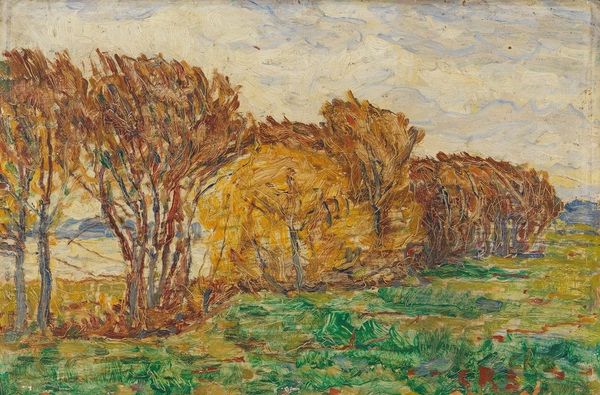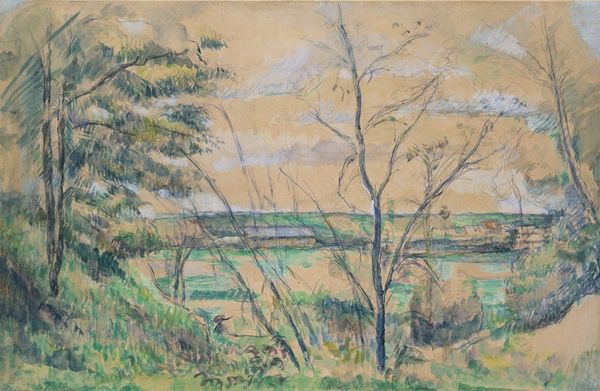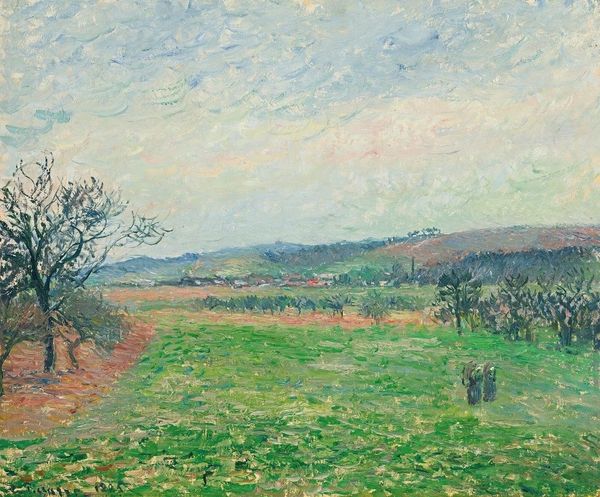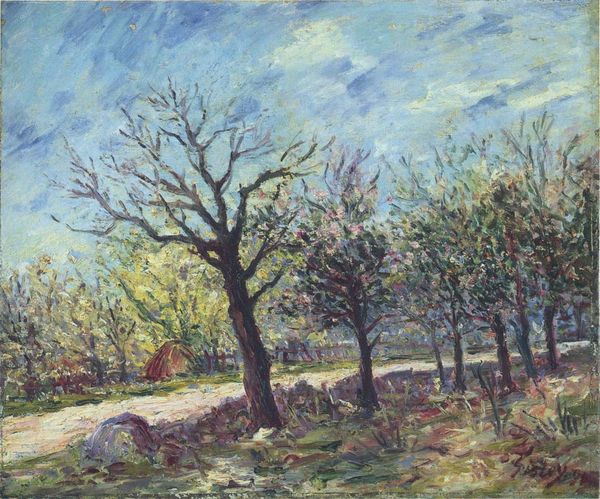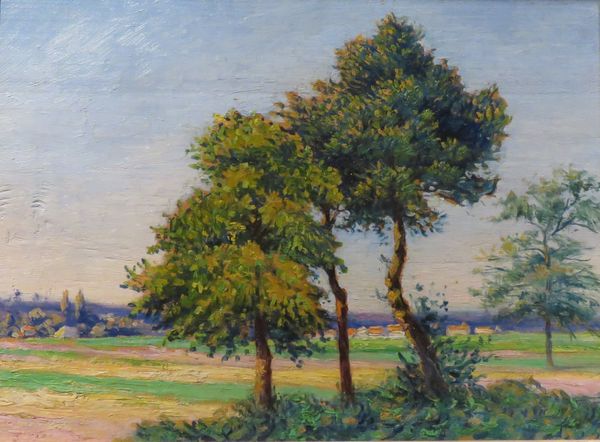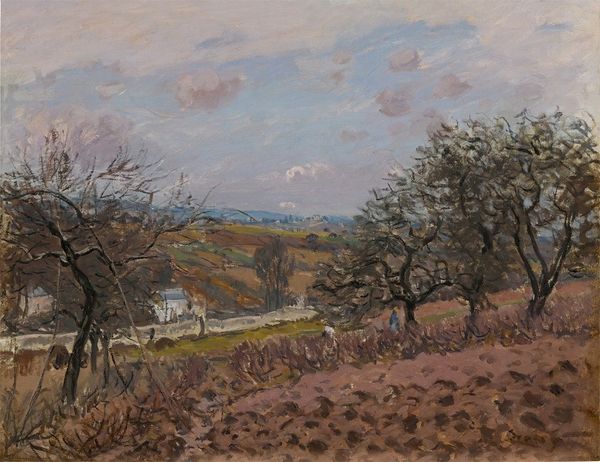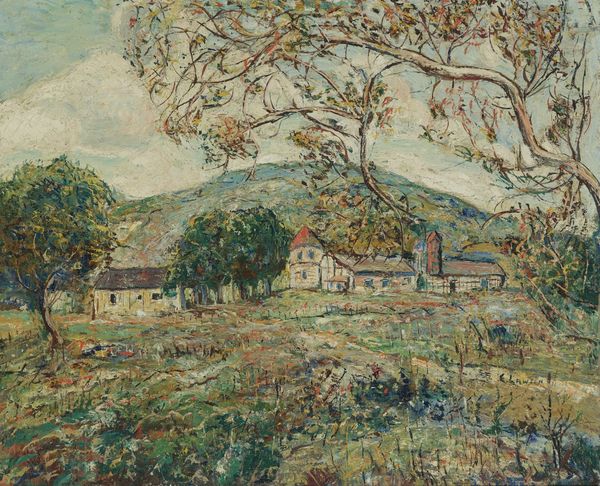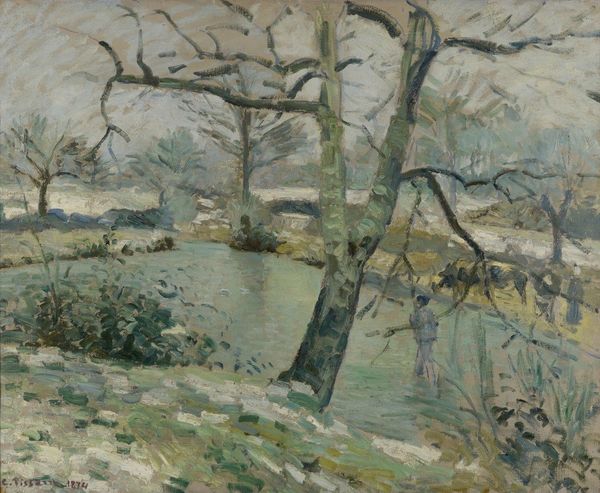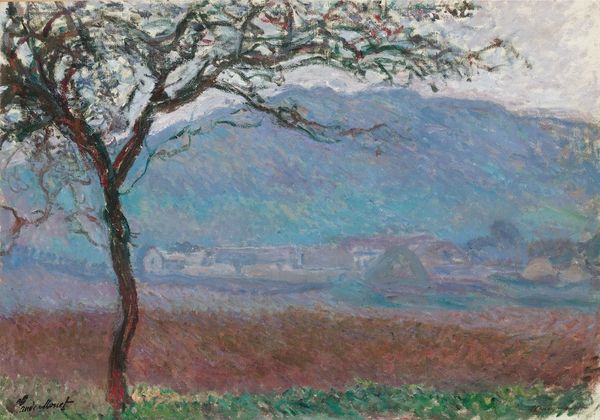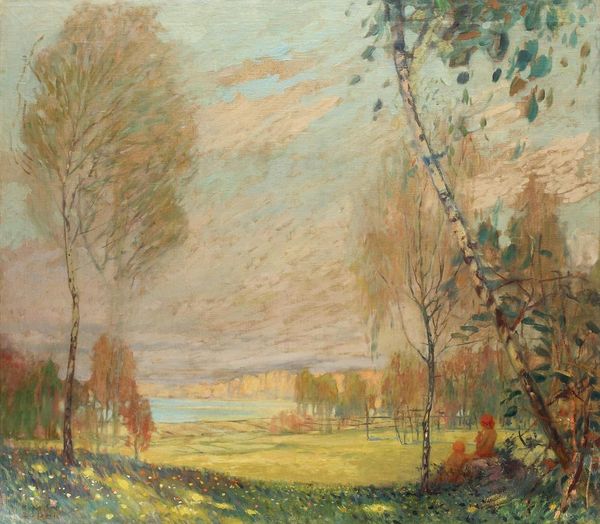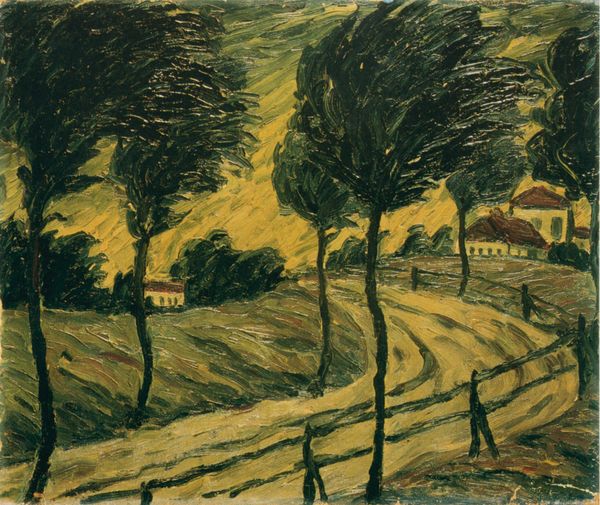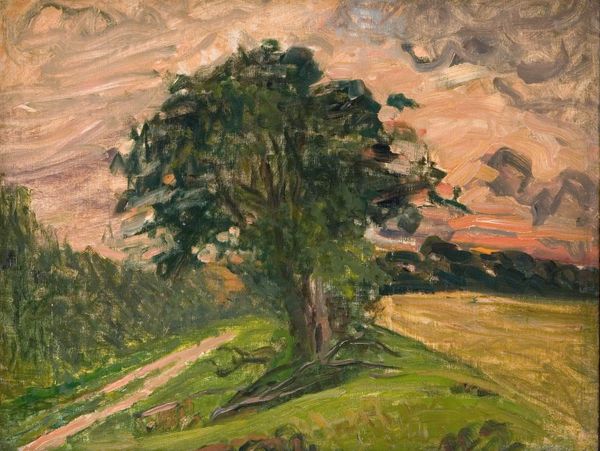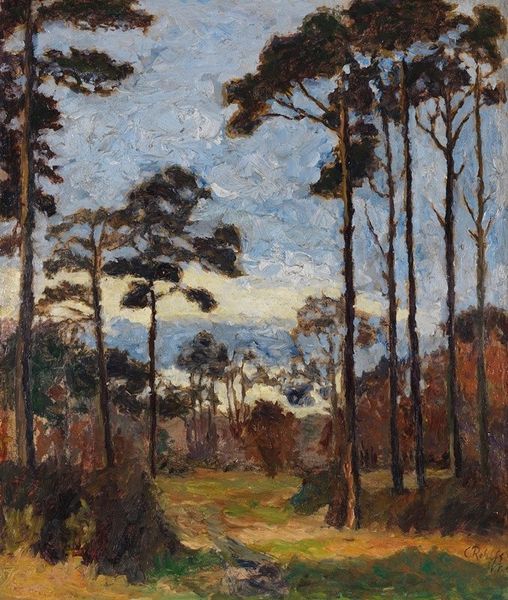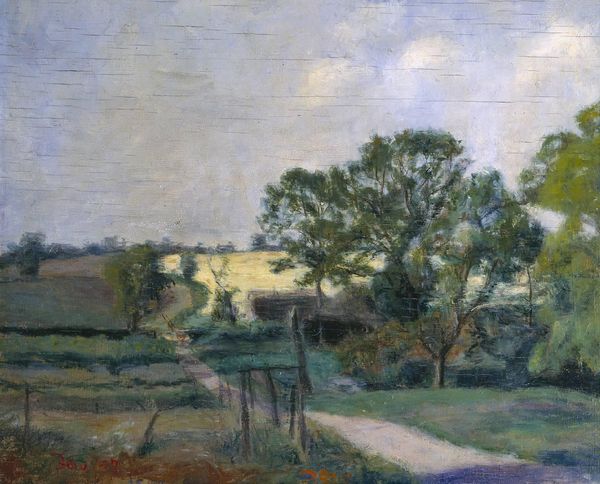
painting, plein-air, oil-paint
#
painting
#
impressionism
#
plein-air
#
oil-paint
#
landscape
#
oil painting
Copyright: Public Domain: Artvee
Paul Cézanne made this painting of bare trees at Jas de Bouffan with oil on canvas. Cézanne’s method was additive, each stroke placed deliberately. The canvas is entirely covered with brushstrokes of varying sizes. The colors are muted, dominated by greens, ochres, and grays. There are no visible underdrawings or preparatory sketches, suggesting Cézanne worked directly from observation. His dabs of paint build up in layers, creating a textured surface and an overall sense of structure. Painting was, for Cézanne, a kind of labor, not unlike the manual work of the rural population he often depicted. Born into a bourgeois family, Cézanne may have been drawn to these subjects as a way of meditating on the changing social landscape of late 19th-century France, even if he himself continued to be the benefactor of the social status quo. Ultimately, to understand Cézanne, we need to consider the physical act of painting itself. The marks, the build-up of pigment, and the very materiality of the canvas, all contribute to its meaning and its continuing relevance to artists today.
Comments
No comments
Be the first to comment and join the conversation on the ultimate creative platform.
